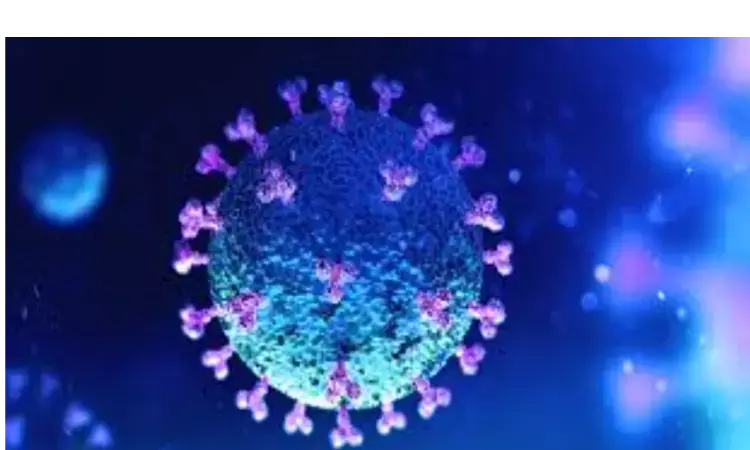- Home
- Medical news & Guidelines
- Anesthesiology
- Cardiology and CTVS
- Critical Care
- Dentistry
- Dermatology
- Diabetes and Endocrinology
- ENT
- Gastroenterology
- Medicine
- Nephrology
- Neurology
- Obstretics-Gynaecology
- Oncology
- Ophthalmology
- Orthopaedics
- Pediatrics-Neonatology
- Psychiatry
- Pulmonology
- Radiology
- Surgery
- Urology
- Laboratory Medicine
- Diet
- Nursing
- Paramedical
- Physiotherapy
- Health news
- Fact Check
- Bone Health Fact Check
- Brain Health Fact Check
- Cancer Related Fact Check
- Child Care Fact Check
- Dental and oral health fact check
- Diabetes and metabolic health fact check
- Diet and Nutrition Fact Check
- Eye and ENT Care Fact Check
- Fitness fact check
- Gut health fact check
- Heart health fact check
- Kidney health fact check
- Medical education fact check
- Men's health fact check
- Respiratory fact check
- Skin and hair care fact check
- Vaccine and Immunization fact check
- Women's health fact check
- AYUSH
- State News
- Andaman and Nicobar Islands
- Andhra Pradesh
- Arunachal Pradesh
- Assam
- Bihar
- Chandigarh
- Chattisgarh
- Dadra and Nagar Haveli
- Daman and Diu
- Delhi
- Goa
- Gujarat
- Haryana
- Himachal Pradesh
- Jammu & Kashmir
- Jharkhand
- Karnataka
- Kerala
- Ladakh
- Lakshadweep
- Madhya Pradesh
- Maharashtra
- Manipur
- Meghalaya
- Mizoram
- Nagaland
- Odisha
- Puducherry
- Punjab
- Rajasthan
- Sikkim
- Tamil Nadu
- Telangana
- Tripura
- Uttar Pradesh
- Uttrakhand
- West Bengal
- Medical Education
- Industry
COVID-19 infection increases risk of stroke and heart attack: Lancet Study

Sweden: COVID-19 may independently increase the risk for ischemic stroke and acute myocardial infarction, a recent study has suggested.
The findings, published in the journal The Lancet, indicate that acute cardiovascular complications might be an essential clinical manifestation of COVID-19 highlighting the need for vaccination against COVID-19.
COVID-19 is a complex disease affecting many organs. Previous studies have shown COVID-19 to be a probable risk factor for cardiovascular complications. Ioannis Katsoularis, Umeå University, Umeå, Sweden, and colleagues therefore aimed to quantify the risk of acute myocardial infarction and ischaemic stroke associated with COVID-19 by analysing all COVID-19 cases in Sweden.
For this purpose, the researchers performed a self-controlled case series (SCCS) and matched cohort study. They identified personal identification numbers of all patients with COVID-19 in Sweden from Feb 1 to Sept 14, 2020 and cross-linked with national inpatient, outpatient, cancer, and cause of death registers.
International Classification of Diseases codes for acute myocardial infarction or ischaemic stroke were identified in causes of hospital admission for all patients with COVID-19 in the SCCS and all patients with COVID-19 and the matched control individuals in the matched cohort study. The SCCS method was used to calculate the incidence rate ratio (IRR) for first acute myocardial infarction or ischaemic stroke following COVID-19 compared with a control period.
The matched cohort study was used to determine the increased risk that COVID-19 confers compared with the background population of increased acute myocardial infarction or ischaemic stroke in the first 2 weeks following COVID-19.
The SCCS study included 86 742 patients with COVID-19 and 348 481 matched control individuals were also included in the matched cohort study.
The researchers found the following:
- When day of exposure was excluded from the risk period in the SCCS, the IRR for acute myocardial infarction was 2·89 for the first week, 2·53 for the second week, and 1·60 in weeks 3 and 4 following COVID-19.
- When day of exposure was included in the risk period, IRR was 8·44 for the first week, 2·56 for the second week, and 1·62 for weeks 3 and 4 following COVID-19.
- The corresponding IRRs for ischaemic stroke when day of exposure was excluded from the risk period were 2·97 in the first week, 2·80 in the second week, and 2·10 in weeks 3 and 4 following COVID-19; when day of exposure was included in the risk period, the IRRs were 6·18 for the first week, 2·85 for the second week, and 2·14 for weeks 3 and 4 following COVID-19.
- In the matched cohort analysis excluding day 0, the odds ratio (OR) for acute myocardial infarction was 3·41 and for stroke was 3·63 in the 2 weeks following COVID-19.
- When day 0 was included in the matched cohort study, the OR for acute myocardial infarction was 6·61 and for ischaemic stroke was 6·74 in the 2 weeks following COVID-19.
Our findings suggest that COVID-19 is a risk factor for acute myocardial infarction and ischaemic stroke, concluded the authors.
"This indicates that acute myocardial infarction and ischaemic stroke represent a part of the clinical picture of COVID-19, and highlights the need for vaccination against COVID-19," they wrote.
Reference:
The study titled, "Risk of acute myocardial infarction and ischaemic stroke following COVID-19 in Sweden: a self-controlled case series and matched cohort study," is published in The Lancet.
DOI: https://www.thelancet.com/journals/lancet/article/PIIS0140-6736(21)00896-5/fulltext
Dr Kamal Kant Kohli-MBBS, DTCD- a chest specialist with more than 30 years of practice and a flair for writing clinical articles, Dr Kamal Kant Kohli joined Medical Dialogues as a Chief Editor of Medical News. Besides writing articles, as an editor, he proofreads and verifies all the medical content published on Medical Dialogues including those coming from journals, studies,medical conferences,guidelines etc. Email: drkohli@medicaldialogues.in. Contact no. 011-43720751


